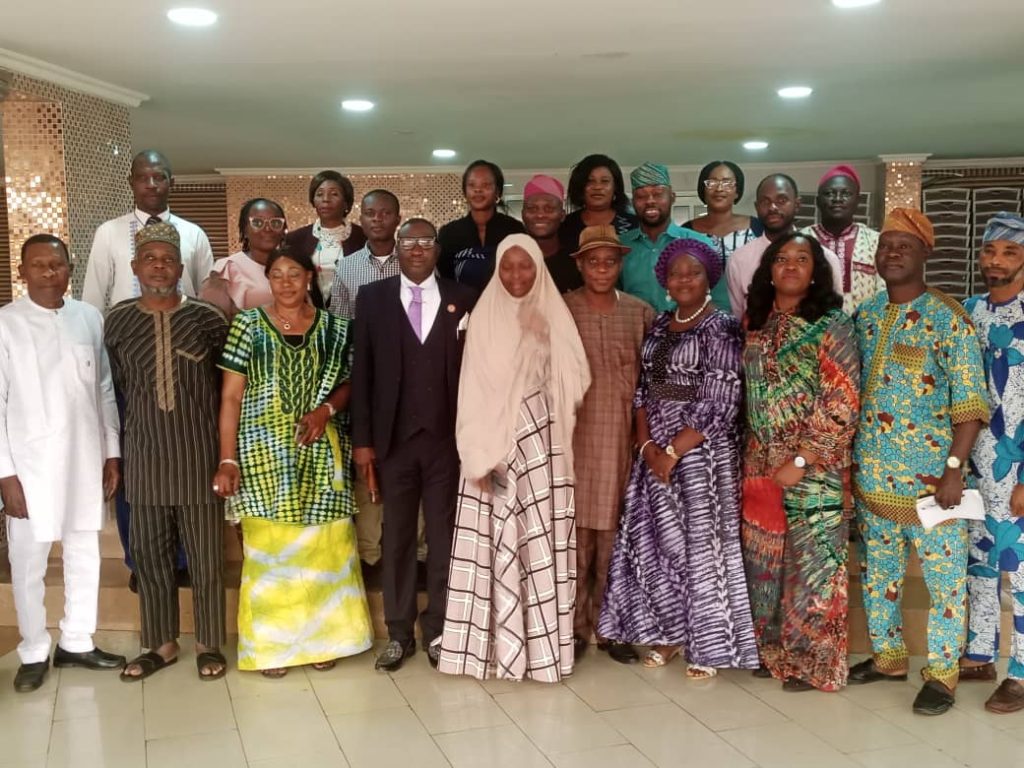Fawaz Adebisi
The Neglected Tropical Diseases unit of the public department of Ogun State Ministry of Health, along with potential stakeholders in the state, have convened to combat NTDs among school-aged children and to enhance deworming in schools across the 20 local governments.
The meeting, organized under the NTD Control Programme, aimed to review the progress and challenges of the school-based deworming programme in the state, as well as to seek support from stakeholders to sustain the programme. It took place on Tuesday at the Conference Hotel in Oke-mosan, Abeokuta.
In attendance were representatives from the Ministry of Education, State Universal Basic Education Board (SUBEB), State Advisory Committee on NTD (SACON), PTA, NUT, NAPPS, FMoH, and Evidence Action, among other stakeholders.
During her address, the State NTD Coordinator, Dr. Soneye Islamiyat, mentioned that the programme has been operational since 2013 with the support of Evidence Action Nigeria, a non-governmental organization working to address poverty gaps by scaling evidence-based programs.
Dr. Islamiyat emphasized that Evidence Action Nigeria has been a reliable partner of FMoH in implementing NTD interventions in line with national guidelines and standards. She stressed that Evidence Action Nigeria has provided technical assistance, capacity building, data management, drug supply chain management, advocacy, and social mobilization for NTD control in Nigeria.
Speaking at the meeting, the Evidence Action Senior Programme Manager, Maryann Edeh, highlighted that the program has dewormed over 280 million children in Africa and Asia and has reached four million individuals in African communities with safe drinking water.
Edeh pointed out that deworming a child costs only 500 naira annually and urged parents to ensure regular deworming of their children to avoid unnecessary health issues.
She advocated that deworming improves the nutritional status, cognitive development, school attendance, and academic performance of children.
She also noted that deworming reduces the transmission of intestinal worms in the community and prevents complications such as anemia, stunted growth, intestinal obstruction, and organ damage.
“The programme has annually trained 5,000 teachers from the public and private sectors to administer deworming drugs to school learners in the state,” she said.
Furthermore, she mentioned that the programme has conducted mass drug administration campaigns in four states in Nigeria: Cross River, Ogun, Oyo, and Lagos.
She highlighted that the programme has allocated over 140 million naira in Ogun State from 2020 to 2022 to ensure that all at-risk children have improved health and education outcomes.
She, therefore, appealed to the stakeholders to continue supporting the programme even after Evidence Action Nigeria stops funding it.
Do you want to share a story with us? Do you want to advertise with us? Do you need publicity for a product, service, or event? Contact us on WhatsApp +2348183319097 Email: platformtimes@gmail.com
We are committed to impactful investigative journalism for human interest and social justice. Your donation will help us tell more stories. Kindly donate any amount HERE




